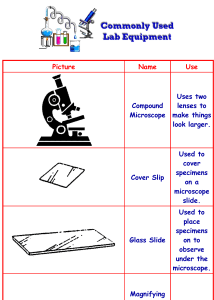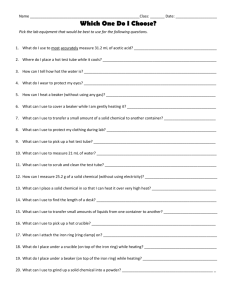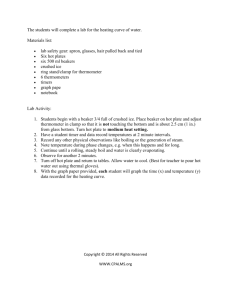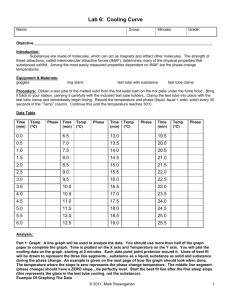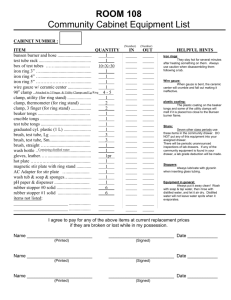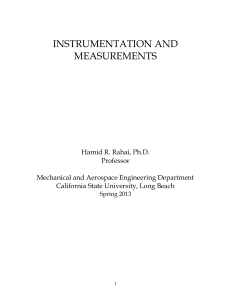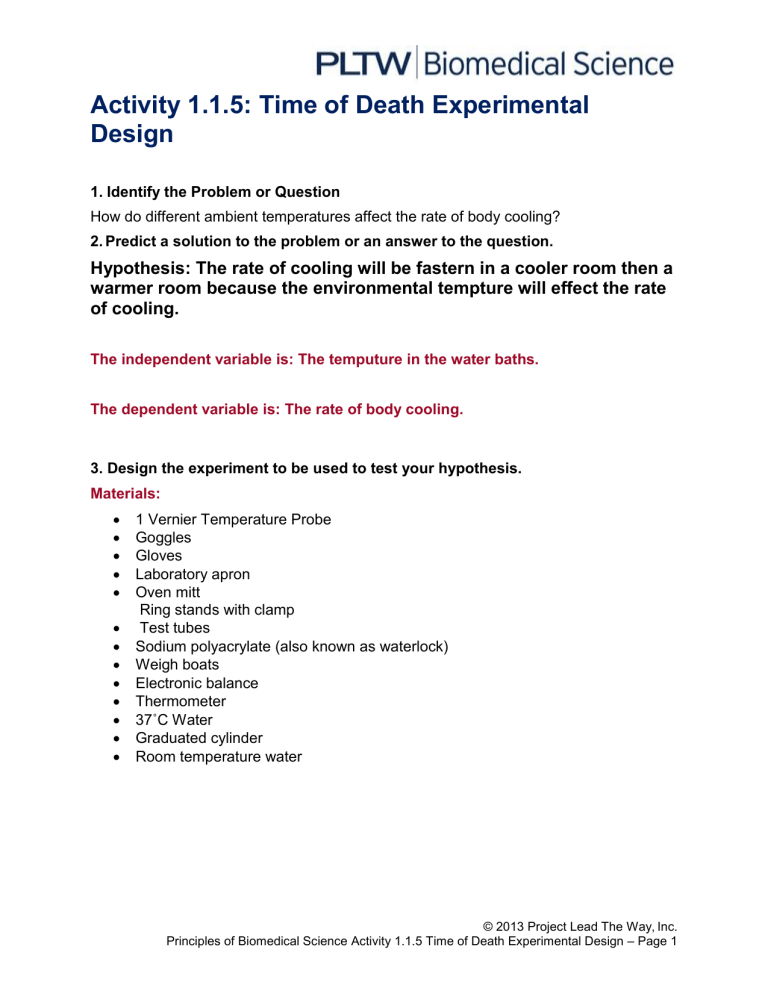
Activity 1.1.5: Time of Death Experimental Design 1. Identify the Problem or Question How do different ambient temperatures affect the rate of body cooling? 2. Predict a solution to the problem or an answer to the question. Hypothesis: The rate of cooling will be fastern in a cooler room then a warmer room because the environmental tempture will effect the rate of cooling. The independent variable is: The temputure in the water baths. The dependent variable is: The rate of body cooling. 3. Design the experiment to be used to test your hypothesis. Materials: 1 Vernier Temperature Probe Goggles Gloves Laboratory apron Oven mitt Ring stands with clamp Test tubes Sodium polyacrylate (also known as waterlock) Weigh boats Electronic balance Thermometer 37˚C Water Graduated cylinder Room temperature water © 2013 Project Lead The Way, Inc. Principles of Biomedical Science Activity 1.1.5 Time of Death Experimental Design – Page 1 Procedure: 1. Wear the appropriate personal protective equipment. 2. Create the following: A 250 mL beaker filled with 200 mL of water at room temperature (approximately 20˚C). 3. Obtain one test tube and measure and place 0.1 gram of sodium polyacrylate into the test tube. 4. Obtain one Vernier Temperature Probe, an analog thermometer, and a ring stand with clamp. 5. Connect the Temperature Probes into CH 1 of the Ti Nspire lab cradel Telecom connector. 6. Place the thermometer in the water bath to ensure that they maintain the correct temperatures. Record this temperature in the Evidence Record table. 7. Attach the Temperature Probes to the clamp on the ring stands. 8. Place 20 mL of 37˚ water into the test tubes. These represent dead bodies. 9. Place a test tube with waterlock representing the dead body in each of the three water baths. 10. Place a Temperature Probe in the center of each test tube with waterlock. 11. Wait for the temperature sensors to reach the temperature of the waterlock. Click to begin data collection. Note that the experiment is set to collect data for 20 minutes. 4. Carry out the experiment. Evidence Record Assigned Temperature: Actual Temperature of Water Bath Maximum Temperature of Waterlock Minimum Temperature of Waterlock (˚C): (˚C): (˚C): Temperature Change (˚C): 50˚C 50 51 37 14 Room temperature 24 37 20.9 -28.9 (0)c 2 33.7 0.5 33.2 © 2013 Project Lead The Way, Inc. Principles of Biomedical Science Activity 1.1.5 Time of Death Experimental Design – Page 2 5. Analyze the data and observations. 98.4-92.4/1.5=4 Atd=6:00 a.m 6. State the conclusion. Conclusion: 7. Summary Paragraph Summary Paragraph: © 2013 Project Lead The Way, Inc. Principles of Biomedical Science Activity 1.1.5 Time of Death Experimental Design – Page 3
